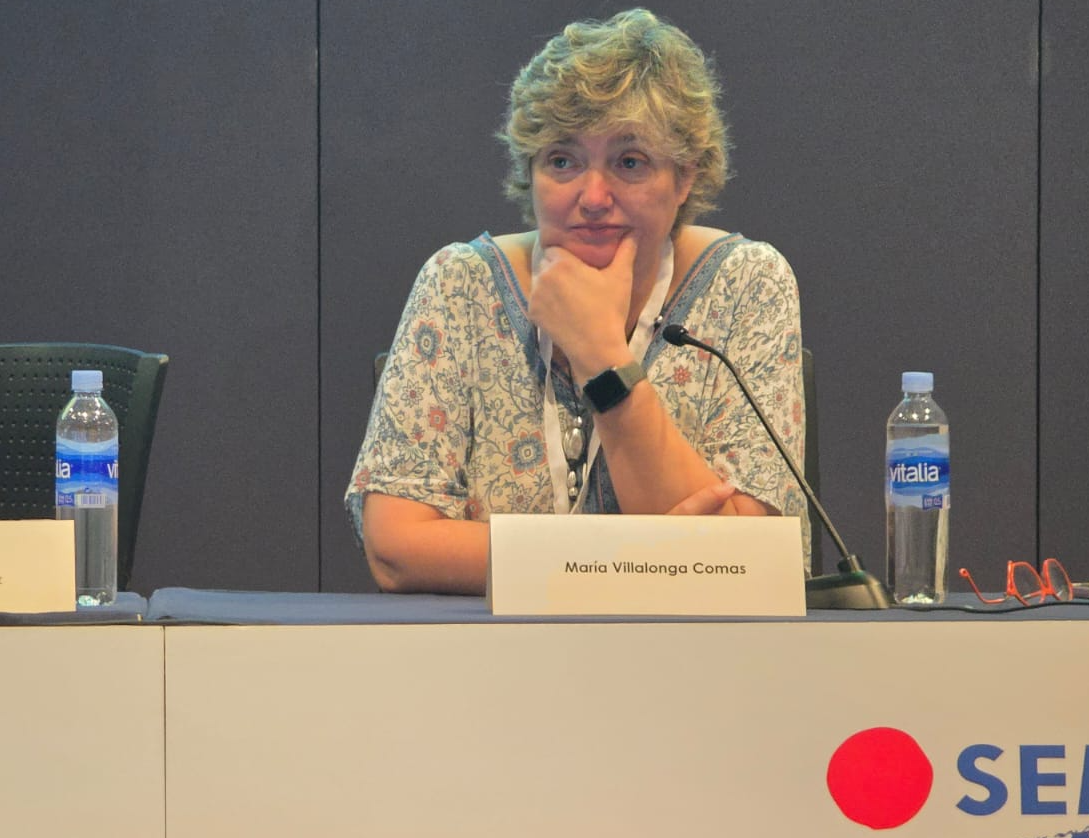Internists consider it a priority to prepare the health system to safely face the climate prospects of the future, as well as to recognize the effect of heat waves on people’s health. These are some of the keys exposed in the meeting with the Healthy Habits expert,…
Internists consider it a priority to prepare the health system to safely face the future climate perspectivesas well as recognizing the effect of heat waves on people’s health. These are some of the keys exposed in the meeting with the expert Healthy habits, sustainable planetthis Saturday, in the 45th National Congress of the Spanish Society of Internal Medicine (SEMI)in Expomeloneras (Las Palomas, Gran Canaria).
In this meeting, moderated by the Dr. Belén Alonso Ortiz, coordinator of the COPD working group of the SEMI and internist in the Internal Medicine Service of the University Hospital of Gran Canaria Doctor Negrínparticipated as speakers Dr. María Villalonga Comas, internist at the Internal Medicine Service of the Son Espases University Hospital in Palma de Mallorcaand the Dr. Carlos Cabrera López, of the Pulmonology Service of the Doctor Negrín University Hospital of Gran Canaria.
It is widely recognized by the entire scientific community that climate change has caused an increase in global temperature. Since the pre-industrial era the average temperature has increased more than 1.2ºC and future projections predict an increase of over 2ºC in the coming decades if effective measures are not applied.
In the words of Dr. Villalonga, “recognizing the effect of heat waves on people’s health is a priority issue in the adaptation process of communities and health systemsespecially taking into account future climate prospects and the increase in vulnerable populationsecondary to the demographic aging experienced by industrialized countries“.
According to Dr. Alonso, heat waves can “seriously affect people’s health and, especially those with chronic pathologies“. In fact, “Excessive heat can cause dehydration, decompensation of previous illnesses and increase the risk of heat stroke. In patients with chronic respiratory pathologies, such as COPDextreme heat your dyspnea worsens and can trigger severe respiratory crisesaggravating their baseline situation and increasing the risk of hospitalization“.
In this regard, Dr. Cabrera highlighted that “The medical community has a crucial role in addressing the challenges of climate change and planetary health.“. This role goes beyond health care itself and “needs the interaction with society and the political sphere“.
Doctors, indicated Dr. Cabrera, must “lead the decarbonization of healthcare systemsnot only because of the ethical problem of being part of a highly polluting structure, but also because serve as an example to other organizations and permanently relate human health to planetary health“. In society, in this way, doctors must “demonstrate that the health of the planet goes hand in hand with human health and that the most important public health challenges also include climate change“.
At the political level, we must establish ourselves as a united bloc that pressures administrations to accelerate decarbonization and to take sustainability measures to care for the population’s health.
There are multiple studies that recognize the effect of these extreme heat events on population mortality. He MoMo reportwithout going any further, carried out annually by the Carlos III Health Institute, estimated that in 2021 there was a 1.22% increase in mortality attributable to excess temperature. Since this report was made, 2021 represents the year with the lowest impact, with 2003 being the year in which the highest excess mortality associated with heat was evident at 6.98%.

According to Dr. Villalonga, “The evidence regarding the morbidity associated with heat waves is still scarce and in many cases the studies provide inconsistent results.“. A study carried out in the United States, which analyzed the increase in hospital admissions during extreme heat events, showed a increase in admissions due to kidney diseasewhile admissions for respiratory pathology did not show significant changes and admissions for cardiovascular pathology decreased. Similar results were obtained in a study that examined hospital admissions for cardiovascular and respiratory pathologies during heat waves in twelve European cities. Dr. Villalonga noted that, “In situations of heat waves, in morbidity studies there is no increase in respiratory diseases that is observed in cardiovascular diseases, mainly in kidney failure and stroke.“.
Recently, a study carried out at the Son Espases Hospital on the impact of heat waves on morbidity and hospital admissions in the town has been published. This study, as commented by Dr. Villalonga, concludes that “there is a increase in ICU admissions on heat wave daysthe most affected group was between 15 and 65 years old, which represented the active population and with respect to diagnoses, there was an increased risk of ischemic stroke and renal failure.“.
When posing the hypotheses and interpreting the results in observational morbidity studies, it is essential that there is biological plausibility between the causal factor of the study (heat waves), the pathophysiological events it generates and its clinicopathological correlation. Regarding the pathologies affected by the acute increase in temperature, cardiovascular, pulmonary and renal diseases are those with the greatest scientific evidence and pathophysiological foundation.
Although these effects can be evident at any age, the elderly population constitutes the most vulnerable group. The lower thermoregulation capacityhe increased comorbidity and polypharmacyhe social isolation and the dependence are some of the factors mainly involved in the increased risk in this population subgroup. However, the consequences of exposure to extreme heat events are also affected by other factors such as residence, socioeconomic level, job occupation or toxic consumption.
On the one hand, explained Dr. Villalonga, internists must try “educate“to their patients regarding need to have healthy habits in their daily lives, but they must take into account the possibility of worsening of your chronic diseasesmainly in episodes of heat waves, assessing whether modifications should be made to your treatment due to the possibility of worsening mainly at the kidney level, insisting on abundant hydration, asking about the conditions of your home due to the association of health problems caused by poor air quality, extreme indoor temperatures, presence of mold and other problems such as ambient noise that interferes with your rest.
When assessing the differential diagnosis of acute diseases, one must “raise the possibility of newly emerging vector-borne diseases related to climate change such as Dengue, Chikungunya, Nile fever, malariaetc“. In case of worsening respiratory diseases, “think about the possibility of presence of new allergens or in the appearance of new asthma“.
All in all, for Dr. Alonso, “The internist, as a specialist with a global vision of the sick person, has a key role in the health-climate binomial, since it must anticipate and manage health problems associated with climate change, which especially affect the most vulnerable patients“. This implies educate to the population about preventive measures, adjust treatments depending on environmental conditions and monitor more closely to those patients with more serious chronic pathologies such as heart failure or COPD. Besides, “The internist must work in the creation of adaptive strategies within the health system, promoting resilience to the effects of climate change on health“.
Among the recommendations are: advise healthy habits to contribute to a sustainable planet; avoid situations of excessive heat, we must not do physical activity in hot hours, insist on adequate hydration; include in the clinical history information about the characteristics of the patients’ home, to be able to detect extreme indoor temperatures or the presence of mold, etc.; reevaluate the medication that patients are taking and if necessary make the pertinent changes; and, finally, take into account the presence of diseases transmitted by newly emerging vectors related to climate change such as Dengue, Chikungunya, Nile fever or malaria, among others.
Dr. Alonso reiterated that “COPD is a pathology that is closely related to prolonged exposure to environmental pollution, since pollutants such as combustion smoke, fine particles, toxic gases and other polluting substances inflame and damage the respiratory tract, aggravating the disease.“. Therefore, living in an environmentally healthy environment, free of mold, pollution and smoke, is essential for people with chronic respiratory pathologies, since “It has been shown to help preserve lung function, reduce the frequency of exacerbations and the risk of hospitalization in these patients“.
In short, doctors have a very important role to play in the development of social awareness and the necessary measures to get closer to a future where human and planetary health can go hand in hand.
